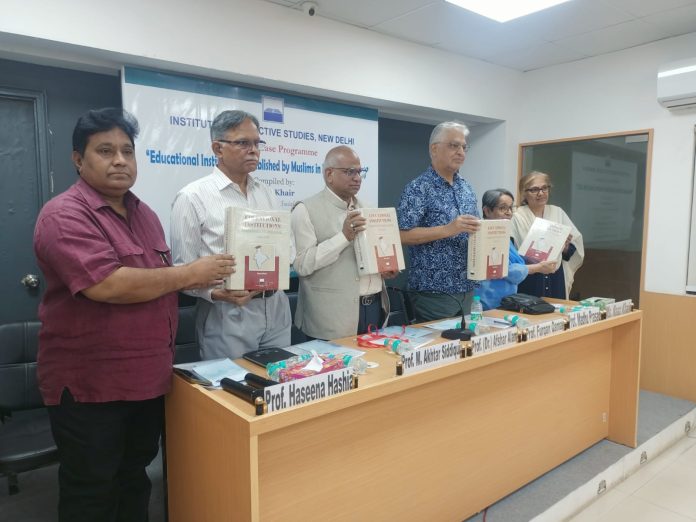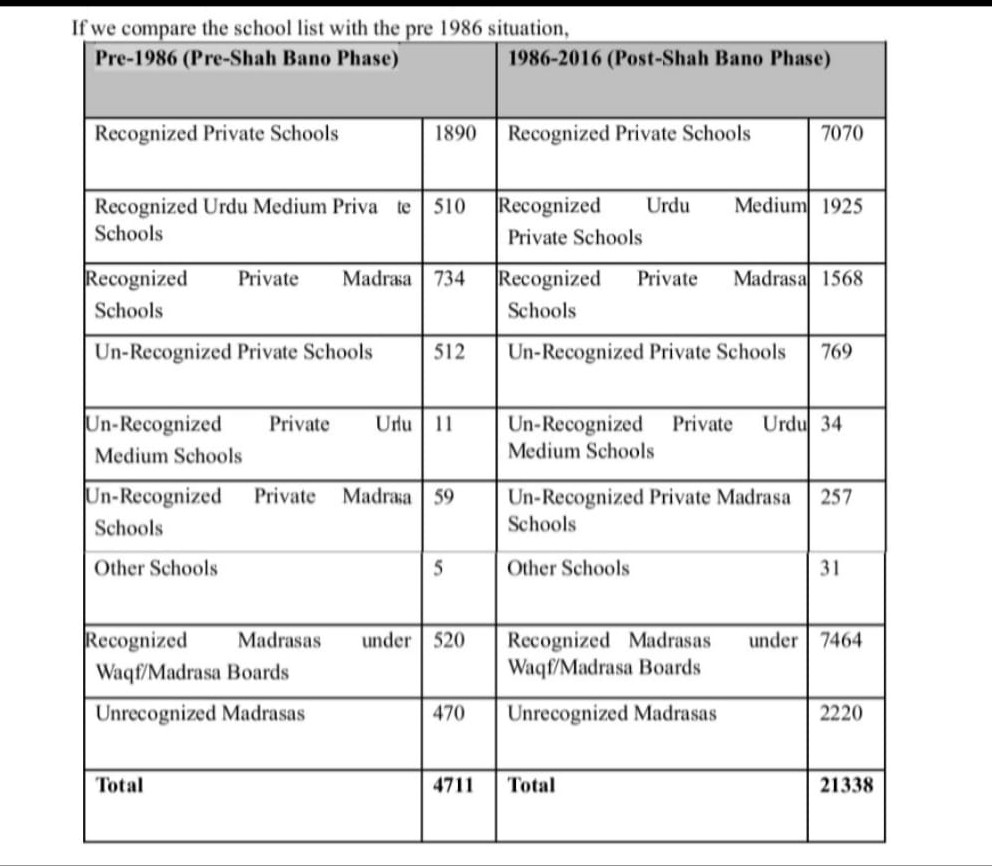Moradabad District, UTTAR PRADESH / DELHI :
Saleem Baig has spent 18 years filing 20,000 applications under RTI to root out corruption. His efforts have earned him the wrath of many but resulted in correcting a few wrongs.
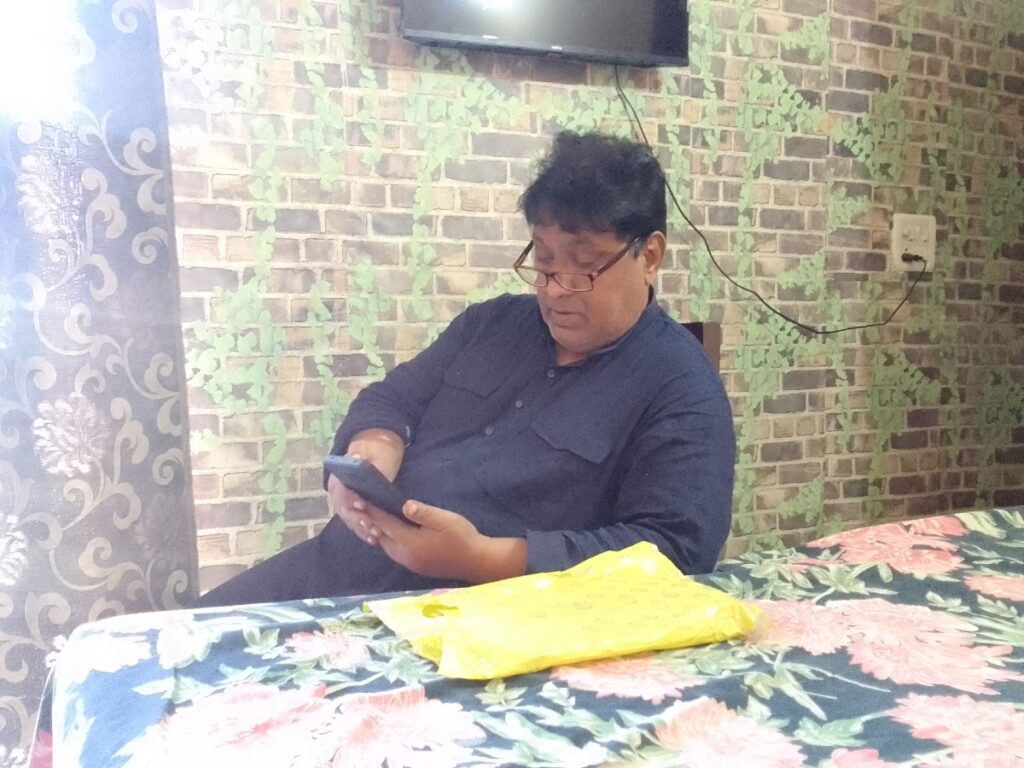
RESILIENT: Saleem Baig has file 20,000 applications under the RTI Act.
Saleem Baig has been using the RTI (Right to Information) Act as a sword against corruption and irregularities for the last 18 years. He has filed around 20,000 applications in states and Union Territory departments, as well as, the Prime Minister’s Office (PMO).
While his applications have often resulted in forcing authorities to change their decisions, and punishing the officers, Baig’s journey as an RTI activist has hardly been ‘a bed of roses’.
He has paid a heavy price for it as his life has turned private and he is hardly seen in public, living in complete secrecy nowadays.
“I have faced different kinds of problems [as an RTI activist]. I have been harassed for asking questions to police and anti-social elements. I was underground for around three and half years, jailed for 20 days and changed residence many times due to fear of arrest, fear or threat,” says Baig, who hails from Uttar Pradesh’s Moradabad district.
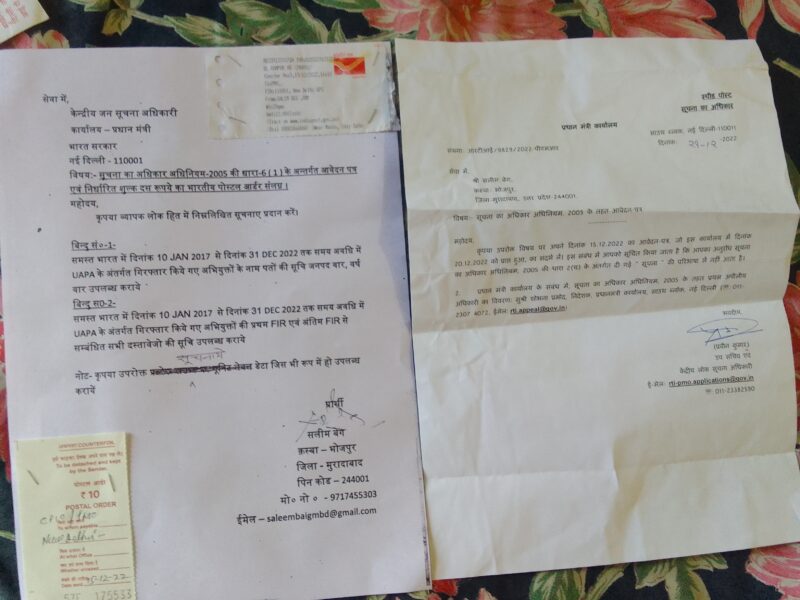
BIG RESPONSE: The reply from the Prime Minister’s Office
But peace of mind isn’t the only thing affecting him adversely.
“I have lost my earnings, business and have had to leave my hometown too.”
Earlier, he owned a business dealing with brass products and also practiced Ayurveda medicine in his hometown of Moradabad, which is famous for its intricate brass-work and is called Peetal Nagri (city of brass). But his dispensary and business shut down and his newspaper became defunct after he was sent to jail in 2008.
Although Saleem started filing RTI immediately after the act came into force in 2005, harassment started in 2007 when he filed an RTI seeking to unearth caste-based recruitment in Moradabad police.
“In February, 2007, I had filed an RTI application at the Moradabad Police office seeking details about recruitment of police constables in the district. I suspected that the jobs had been sold. We challenged it to the RTI watchdog body UP State Information Commission, which found an illegal process in this recruitment and slapped a fine of Rs 25,000 on SP, rural Moradabad.”
The order put him in the bad books of police and others associated with them.
“This order was enough for the police officials to start harassing me and my family. I was pressured and threatened too not just by the police but also by acquaintances who were affected by it, as well as brokers. They wanted me to withdraw the case. But I didn’t and informed it to the commission,” he says.
He says he had to pay a heavy price for it.
“The SO (Station Officer) Police implicated me in fake cases of theft and extortion, among others. So, I went underground for six months,” reveals Saleem.
“When I returned after six months, the police first arrested me in June, 2008, in connection with fake cases and then filed an FIR before sending me to jail. I was released after 18 days. After my release, the police filed a fake FIR against me again.
“Finally, I left my hometown and moved to Lucknow and remained underground for two and a half years. My lawyer told me that the police wanted to impose NSA (National Security Act) and arrest me. They are all bogus cases, which have been quashed by the court now,” said Baig.
The RTI is an act of the Parliament of India which sets rules and procedures regarding citizens’ right to information. Right to Information Act, 2005, mandates timely response to citizens’ requests for government information and empowers every citizen to seek any information from the government, inspect any government document and seek certified photocopies thereof.
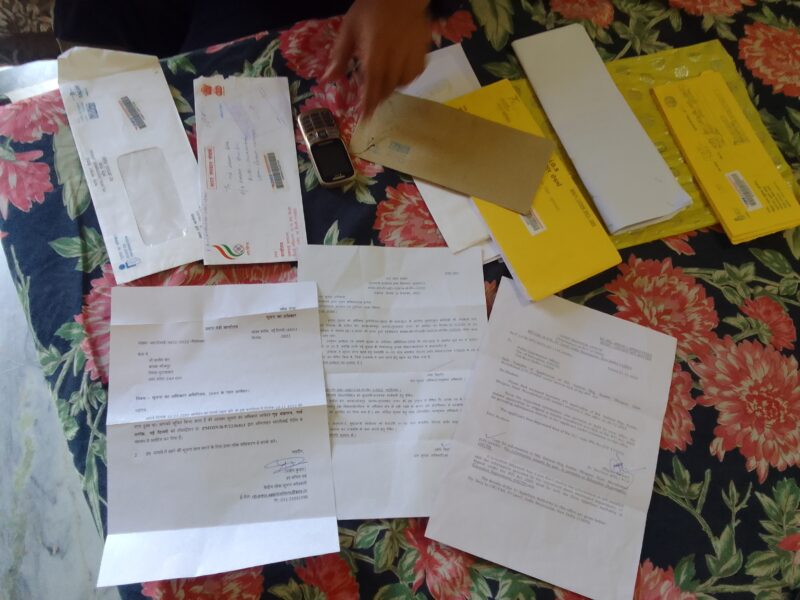
FRUITS OF LABOUR: Some of the responses that Baig has got from his applications
During this entire period, Saleem’s personal life has been badly affected. Not only Baig, but his family has also paid a huge cost.
“I am unable to complete my regular work — related to authorities — easily. For example, if I want to admit my child to school and if there is any requirement or difficulty, I cannot even approach any politician, Member of Legislative Assembly (MLA) or a Member of Parliament (MP). Other people can do, but I can’t because of the bad rap due to our RTI queries,” he adds.
“If we ask for any information like road, water, electricity from local, state or central government-level officers, then we enter their ‘bad book’. When we reveal information, politicians and officers feel upset. So, our general work from block level to Centre, which is our right, anyway, doesn’t happen easily,” he complains.
Baig feels that the lives of most of the RTI activists are at risk.
“I have personally faced this. People need to realise that while filing applications under RTI, we are helping the state and Centre by bringing in awareness. But RTI activists are being killed in the country because no government or officer wants to back them.”
Commonwealth Human Rights Initiative data shows that 28 activists have been threatened, assaulted, or killed every year on an average since the Right to Information Act came into effect in 2005 in India.
“When I went underground for over three years, everything – my brass goods business and ayurvedic shop — was crushed. Sab chopat ho gaya (Everything ended).We barely survived. I was not as rich. My earnings got reduced drastically but expenses increased due to travel or lawyer’s fees. Our belongings were sold. My children’s education had come to a halt for two years. So, I had to shift them to my father-in-law’s home,” Baig says before breaking down.
“My younger son often asks his mother, ‘Ammi (Mother), why do the police come to our home again and again’. My heart would tremble when my wife would tell me over phone that our son is asking, ‘Ammi hum school kab jayenge (Mother, when would we go to school). I faced a lot of problems, which I can’t explain,” he says.
Some relief had come in the form of some Non-Governmental Organisations (NGOs), which helped Baig.
“Some big NGOs offered me fellowships after that. In 2011-12 ‘Dalit Foundation’ gave me a fellowship of Rs 7,000 per month for highlighting atrocities on Dalits and minorities. In 2012, another funding agency gave me a fellowship of Rs 15,000. That was a big support for me to survive that time.”
Baig has won many awards for his courageous work, including a lifetime achievement award by the Delhi State Minorities Commission. Also, his RTI reference was used by the court and published in international media. He was a member of the fact-finding team of the 2020 North-East Delhi riots too.
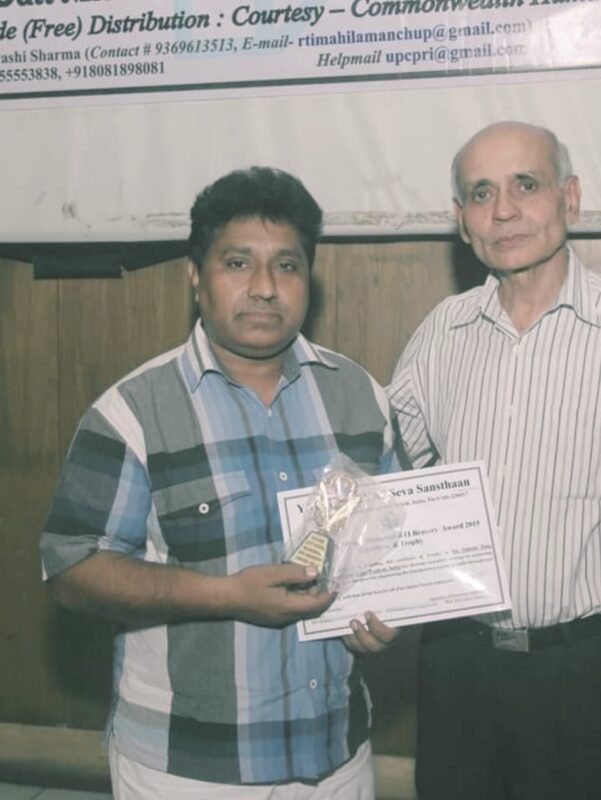
“Presently, I work as a RTI trainer. Some NGOs invite me to train their people and also, I work as a researcher with a prestigious organisation. Currently, these two are the only sources of my income. But during Covid, my condition went bad again, because my job as a trainer came to a halt. Then I went into debt, which I haven’t been able to pay as yet,” he says further.
For the last 5-6 years, Baig has been living in Delhi with his family.
“I want to appeal to the citizens to use the RTI Act for public’s benefit. The usage of RTI is very low at present because many state and even Central governments have shrunk power of this act. Especially since 2014,it has gone from bad to worse. But we can use this act as a tool or sword to stop corruption. We should fight for our rights. If we don’t have awareness, then we are like dead people. Aap mare hue hain, aur mara hua aadmi hi harkat nahi karta (You are a dead man, as it is only a dead man who doesn’t react).”
source: http://www.thepatriot.in / Patriot / Home> Community / by Muhammad Tahir / March 06th, 2023
